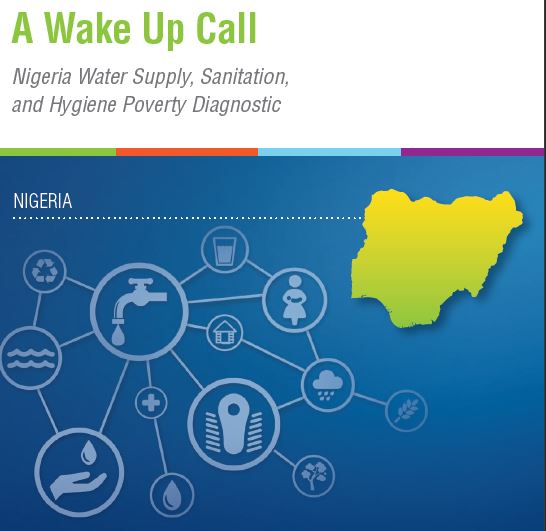A Wake Up Call Nigeria Water Supply, Sanitation, and Hygiene Poverty Diagnostic
More than 300 million people in Sub-Saharan Africa do not have access to improved water, and close to 700 million lack access to improved sanitation facilities. In Nigeria alone, 71 million people continue to live without access to improved water, while 130 million people do not meet the Millennium Development Goal (MDG) standards for sanitation. A large body of evidence suggests that limited or no access to water supply, sanitation, and hygiene (WASH) services adversely affects individuals’ health, hinders their access to educational and economic opportunities, and affects their work efficiency and labor productivity. As the global community moves toward achieving the Sustainable Development Goals (SDGs), it is necessary to assess the current state of access to water and sanitation in Nigeria so policy makers and key stakeholders can develop effective policies and interventions to address shortcomings in access to WASH. Such efforts should be targeted at the most vulnerable in society, specifically those who experience the greatest burdens of poverty. This report offers an overview of the state of WASH services in the country. It draws from a number of national data sources, desk reviews, and original research to analyze service delivery in the country and assess the sector’s performance. It offers an overview of poverty in Nigeria, considers the relationship between poverty and WASH, explores demographic patterns influencing access to WASH, and analyzes the relationship between WASH and child health outcomes. Further, it evaluates the performance of water agencies, examines and identifies institutional bottlenecks, offers insights on how to make the sector more efficient and sustainable, conducts a public expenditure review (PER) of the WASH sector, and explores the organization of the institutional landscape for urban water supply in Bauchi City. The report concludes with recommendations for tackling the current crisis of WASH services in Nigeria.
